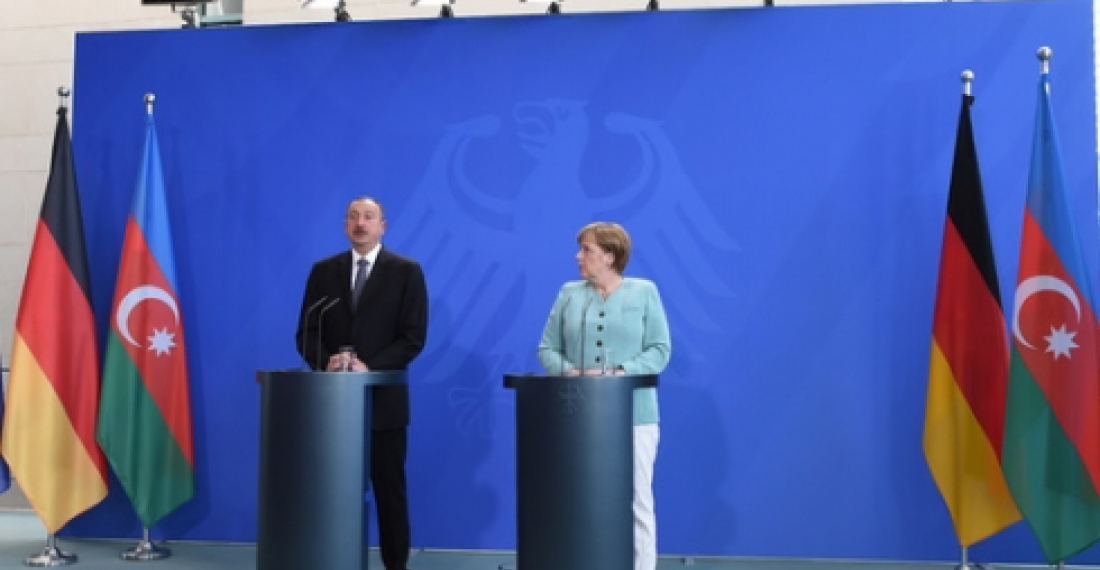Russia plays a key role in resolving the Nagorno-Karabakh conflict, said German Chancellor Angela Merkel in a joint press conference with her Azerbaijani counterpart.
Merkel, who is known to have a closer relationship with Vladimir Putin than other western leaders, reiterated German’s support for a diplomatic solution to the conflict, under the auspices of the OSCE Minsk Group. The OSCE is currently chaired by Frank-Walter Steinmeier, a German.
"Russia, of course, will play a key role in the settlement of the Nagorno Karabakh conflict. We will use our contacts to assist the Russian Government, as well as the Minsk Group Co-Chairs (US and France governments) to settle the Nagorno Karabakh conflict," said Merkel.
She and Ilham Aliyev were speaking at the opening of a business forum in Berlin. Aliyev echoed her comments on Russia, saying the country plays a “very constructive” role in working towards a Karabakh settlement.
Russia has close ties to both Armenia and Azerbaijan, selling arms to both. However as a fellow ally in the Eurasian Economic Union, it sells them to Armenia at discounted rates.
Merkel and Aliyev also discussed the economic reforms being carried out in Azerbaijan, as the country tries to diversify and develop the non-oil sector.
SOURCE: commonspace.eu and agencies
PHOTO: president.az






